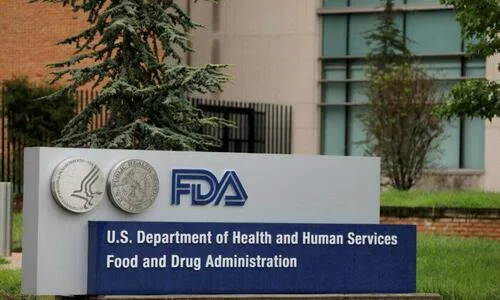Authored by Naveen Anthrapully via The Epoch Times,
The U.S. Food and Drug Administration (FDA) has approved CSL Behring’s hemophilia B gene therapy, a one-off infusion treatment with a list price of $3.5 million, making it the world’s most expensive medicine.
The approval of CSL Behring’s Hemgenix “provides a new treatment option for patients with Hemophilia B and represents important progress in the development of innovative therapies for those experiencing a high burden of disease associated with this form of hemophilia,” said Peter Marks, director of the FDA’s Center for Biologics Evaluation and Research.
Hemgenix is used for treating hemophilia B patients who currently use factor IX prophylaxis therapy or suffer from serious spontaneous bleeding episodes or have had a life-threatening hemorrhage. Based on clinical trials, the infusion reduced annual bleeds and “94 percent of patients discontinued factor IX prophylaxis and remained prophylaxis-free,” said the company, opening the possibility for the drug to eliminate the need for lifelong routine treatment in adult patients.
Arising from a single gene defect, hemophilia B is a rare, lifelong bleeding disorder with the current available treatment requiring patients to undergo strict, lifelong prophylactic infusions of factor IX. Although effective, patients are prone to experiencing spontaneous bleeding episodes, whereas Hemgenix allows people to “produce their own factor IX,” according to CSL Behring.
Hemgenix treats patients at the genome level, with an engineered virus carrying the gene expressed in the liver to produce clotting factor IX. Gene therapies are touted to significantly improve medical conditions by resolving underlying causes.
“While the price is a little higher than expected, I do think it has a chance of being successful because 1) existing drugs are also very expensive and 2) hemophilia patients constantly live in fear of bleeds,” said Brad Loncar, chief executive of Loncar Investments, to Bloomberg.
“A gene therapy product will be appealing to some.”
Hemgenix’s one-time treatment can enable people to bypass regular infusions from current treatment providers, Biogen and Pfizer. The list price is not necessarily what patients pay for the drug.
Hemophilia Symptoms, Causes
Hemophilia is a bleeding disorder that is characterized by the body’s inability to clot blood properly due to the absence of enough blood-clotting proteins or clotting factors. Almost always a genetic disorder, it is concerning when the bleeding occurs internally, and leads to life-threatening organ and tissue damages.
Symptoms include excessive bleeding from cuts, blood in urine, and bleeding into the brain. Many people are born with the disorder, and the most common type is hemophilia A, associated with a low level of factor VIII, followed by hemophilia B with a low factor IX. Acquired hemophilia can happen from autoimmune conditions and adverse drug reactions.
According to Mayo Clinic, hemophilia almost always occurs in boys, and is passed from mother to son through one of the mother’s genes. The Centers for Disease Control and Prevention (CDC) says that hemophilia occurs in about 1 of every 5,000 male births.
Hemgenix Trials, Results
The FDA approved Hemgenix following findings from an ongoing, multinational, open-label, single-arm Phase III HOPE-B clinical trial that evaluated the safety and efficacy of the treatment.
Based on one study which had 54 participants, Hemgenix increased factor IX activity levels, and decreased the need for routine replacement prophylaxis, while the participants were found to have a 54 percent reduction in annualized bleeding rate compared to baseline.
The gene therapy allowed patients to produce mean factor IX activity of 39 percent at six months and 36.7 percent at 24 months post-infusion, said CSL Behring. Post-treatment, 51 out of 54 participants discontinued use of prophylaxis, and remained free of previous continuous routine prophylaxis therapy.
The most common adverse effects following Hemgenix gene therapy were liver enzyme elevations, headache, elevated levels of a certain blood enzyme, flu-like symptoms, infusion-related reactions, fatigue, nausea, and feeling unwell.
Patients should be monitored for adverse infusion reactions and liver enzyme elevations (transaminitis) in their blood, said the FDA.
HEMGENIX is still currently under assessment by other regulatory agencies.
